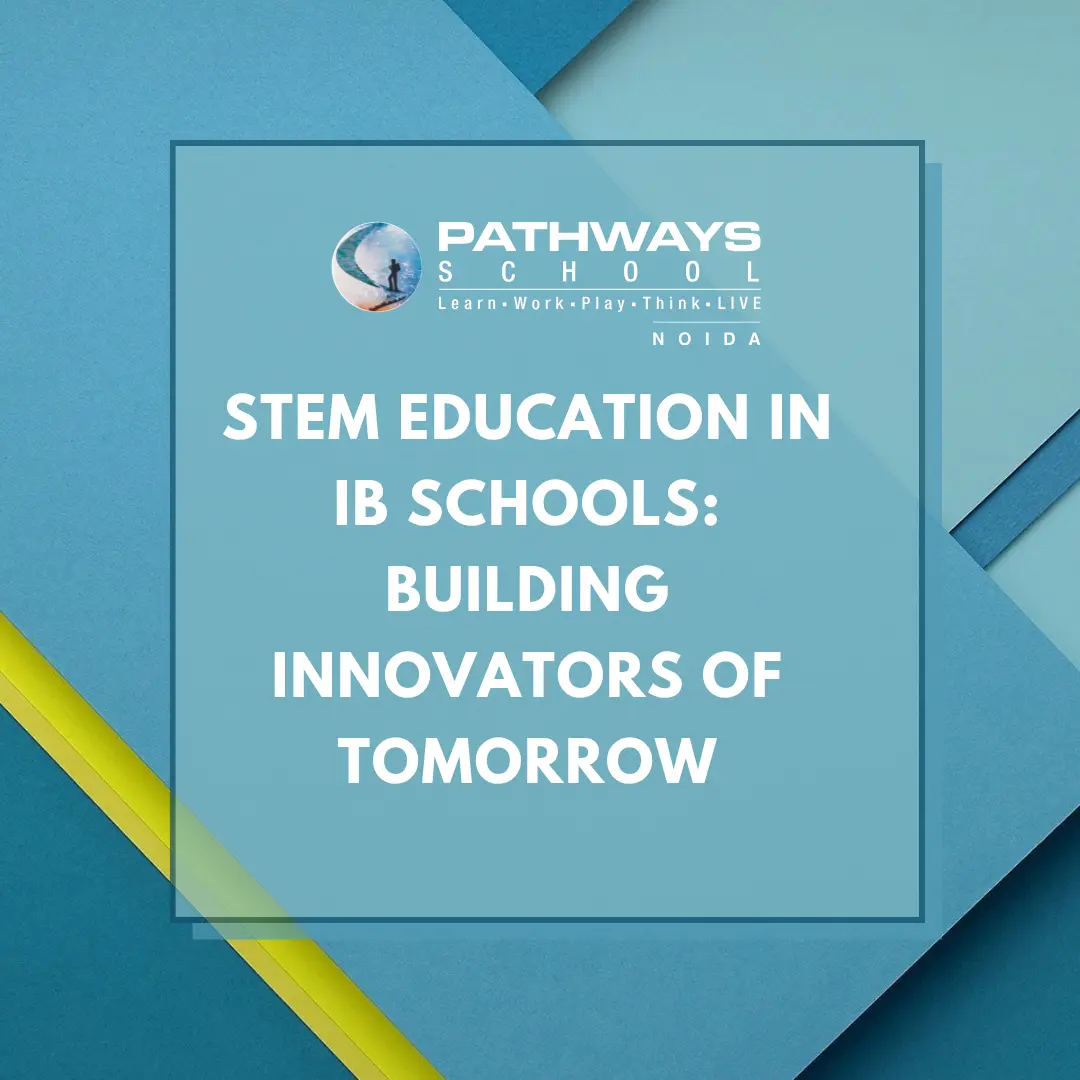Get In Touch
To talk to a counselor or schedule a personalized school tour, please complete the form below. We look forward to hearing from you.

Our Community
- Home
- Our Community
- Blog
Our Community
Pathways School Noida
Blog
Back-
STEM Education in IB Schools: Building Innovators of TomorrowOctober 10
The International Baccalaureate framework reshapes STEM education by teaching subjects as interconnected learning experiences rather than in isolation. Students explore mathematics through biological patterns, study chemistry through environmental challenges, and apply physics principles to real-world engineering problems. This integration mirrors how true scientific innovation happens beyond the classroom.
Inquiry as the Foundation
IB schools position students as researchers instead of just passive receivers of knowledge. A lesson in chemistry turns into a study about sustainable materials. A mathematics class might become an investigation into city traffic patterns. This way of learning, which is based on asking questions, helps to grow natural curiosity and critical thinking skills. These are the key characteristics needed for successful innovators in various fields.
Focusing on the questions "why" and "how" helps to create students who question assumptions and look for proof. They come up with experiments, study data and make conclusions by themselves. These experiences build confidence in tackling uncertainty, a vital trait for anyone aspiring to work in science or technology.
Collaborative Problem-Solving
STEM projects in IB schools are rarely individual pursuits. Pupils engage in varied teams, mixing distinct skills and viewpoints to resolve complex problems. A robotics project might unite programmers, design thinkers, and data analysts reflecting how innovation teams function in real-world labs and tech companies.
In this cooperative setting, students gain communication abilities that are usually missed in conventional STEM learning. They learn to articulate technical ideas clearly, debate methods respectfully, and collaborate toward solutions. These soft skills turn out to be equally important as their hard knowledge when they pursue careers in science and engineering fields.
Technology as a Tool, Not a Subject
IB programs make use of technology in a natural way across all areas of learning, they do not treat it as an independent subject. Students apply coding to simulate changes in the climate, use 3D printing for checking architectural designs and utilize data visualization to show research results. This method guarantees that students become literate with technology through its real-world usage.
When technology is applied with purpose, students recognize its power as a problem-solving tool. They gain knowledge on when to use artificial intelligence, where it is beneficial with statistical software and how programming can simplify complicated calculations by automating them. This practical understanding readies them for swiftly changing technological environments.
Global Context and Ethical Thinking
IB schools create STEM challenges by considering worldwide issues, like lack of water or shifts to renewable energy sources. Students examine how scientific decisions affect diverse communities and reflect on the ethical implications of technological progress. In a genetics lesson, they not only learn DNA workings but also discuss topics such as genetic modification and fairness in getting healthcare services.
This worldwide viewpoint makes creators who think about outcomes beyond instant results. They know that successful solutions need to be lasting, reachable and respectful of different cultures. Such awareness is increasingly vital as technology continues to shape communities across the globe.
Creating Lifelong Learners
The IB method for STEM education mainly focuses on developing flexible thinkers instead of experts in modern technologies. It teaches students the way to learn, making them ready for jobs that might not be available yet. They graduate equipped with research skills, analytical thinking, and creative problem-solving abilities that extend beyond any single scientific field.
These basics make sure students can turn as sectors change, welcome new technologies and keep developing professionally all through their careers. This adaptability defines true innovation in an era where constant change is the norm.
-

Drop us your details for a quick response!







Copyright 2025 © Pathways School Noida. All rights reserved.
Managed By: Dezine N Digital








Get in Touch